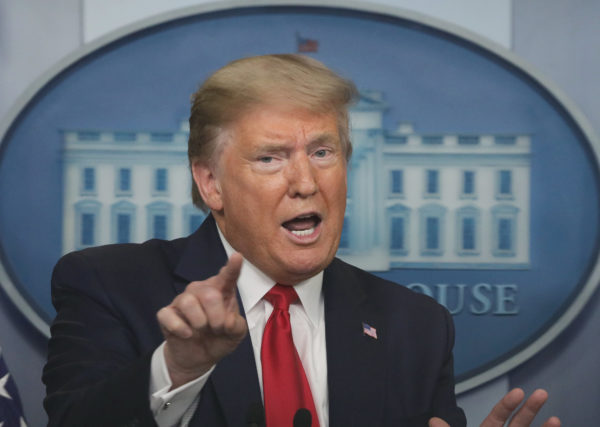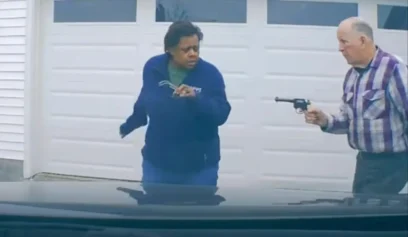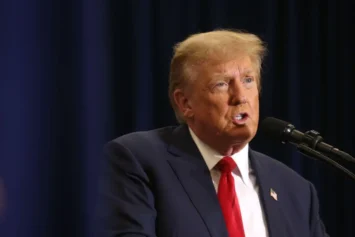President Donald Trump’s interpretation of his presidential authority drew criticism from both sides of the political aisle.
On Monday, April 13, Trump tweeted it was up to him, not state governors, to decide if coronavirus restrictions would remain active. He blamed the news media for spreading what he believed was incorrect information about federal power.
“For the purpose of creating conflict and confusion, some in the Fake News Media are saying that it is the Governors decision to open up the states, not that of the President of the United States & the Federal Government. Let it be fully understood that this is incorrect,” Trump wrote.

In a second post, Trump said he would work with governors to monitor the effects of the pandemic.
“It is the decision of the President, and for many good reasons. With that being said, the Administration and I are working closely with the Governors, and this will continue,” he added. “A decision by me, in conjunction with the Governors and input from others, will be made shortly!”
Trump doubled down on his assertion during a briefing later in the day.
“When somebody is president of the United States, the authority is total,” he told reporters. “The governors know that.” The president made it clear who he believed called the shots. “The president of the United States has the authority to do what the president has the authority to do, which is very powerful. The president of the United States calls the shots.”
When CNN reporter Kaitlan Collins told Trump his statement is “not true,” he said the administration would “write up papers” on the topic.
“The governors need us one way or another,” he continued. “Because, ultimately, it comes with the federal government. That being said, we’re getting along well with the governors.”
Collins also questioned if Trump spoke to any governor who agreed with his position.
“I haven’t asked anybody. You know why? Because I don’t have to,” he replied.
Unlike some other nations, the United States isn’t one with a form of authoritarian government, where there is submission to authority and no individual freedom regarding thought and action. Constitutionally, the executive branch of the government cannot claim total power. The 10th Amendment states, “the powers not delegated to the United States by the Constitution, nor prohibited by it to the States, are reserved to the States respectively, or to the people.”
“This isn’t ancient Rome where there’s a special law that says in the event of an emergency all the regular rules are thrown out the window and one person, whom they called the dictator, gets to make the rules for the duration of the emergency or for a period of time,” University of Texas School of Law professor Robert Chesney told The Washington Post. “We don’t have a system like that.”
Trump’s declaration sent shock waves across the country and led to criticism from both Democrats and Republicans.
Former presidential candidate and congressman Joe Walsh, a Republican, urged other party members to call Trump out.
“Where are all the Republicans telling Donald Trump that his authority is not ‘total’ or ‘absolute?’ Where are all the Republicans telling Donald Trump that he’s not a King?” Walsh tweeted.
New York governor Andrew Cuomo promised he would defy Trump if he attempted to reopen the country.
“We don’t have a King Trump. We have a President Trump,” Cuomo said during an appearance on CNN. “If he ordered me to reopen in a way that would endanger the public health of the people of my state, I wouldn’t do it.”
He believes a move by Trump toward complete authority would prove detrimental to the country.
“We would have a constitutional challenge,” Cuomo added. “The worst possible thing he could do at this moment would be to act dictatorial and to act in a partisan, divisive way.”


